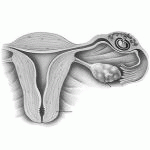Gynaecology
|
21 july 2014 03:05:12 |
| Breastfeeding practice and associated factors among female nurses and midwives at North Gondar Zone, Northwest Ethiopia: a cross-sectional institution based study (International Breastfeeding Journal) |
|
Tweet Background:
Health care workers have a duty to promote and support breastfeeding among their clients. Although their ability to do this may be influenced by their knowledge and personal experience; little is known about breastfeeding practices and the perceived barriers. The objective of this study was to assess the breastfeeding practices and the associated factors among female nurses and midwives in North Gondar Zone; Northwest Ethiopia.
Methods:
An institution based cross-sectional study design was conducted in 2013 among 178 nurses and midwives. In this study exclusive breastfeeding refers to breastfeeding exclusively for the first six months of a child`s life. Bivariate and multivariate logistic regressions were performed to identify the presence and strength of association. Odds ratios with 95% confidence interval were computed to determine the level of significance.
Results:
Exclusive breastfeeding rate among respondents was found to be 35.9%. Nearly half (49.4%) of the respondents exclusively breastfed for only 3 months or less. The mean duration exclusive breastfeeding was 4.1 +/- 1.7 months. Older women (AOR = 2.8; 95% CI 2.16, 3.24), rural residence (AOR = 3.01; 95% CI 2.65, 3.84), being midwife (AOR = 2.01; 95% CI 1.83, 2.56), a women who gave birth through vaginal delivery (AOR = 2.0; 95% CI 1.68, 2.87), multiparous women (AOR = 2.20; 95% CI 1.74, 2.67) and resumption of work after 3 months (AOR = 1.61; 95% CI 1.24, 2.35) were independently associated with exclusive breastfeeding.
Conclusion:
Though respondents had adequate knowledge on breastfeeding, the practice of exclusive breastfeeding was low. Maternal age, place of residence, profession, mode of delivery, parity and the time before resuming work were factors associated with exclusive breastfeeding. Appropriate education concerning breastfeeding, directed at nurses and midwives is required to enhance exclusive breastfeeding and duration of breastfeeding. |
| 112 viewsCategory: Gynaecology |
 Prenatal screening for congenital anomalies: exploring Midwives` perceptions of counseling clients with religious backgrounds (BMC Pregnancy and Childbirth) Prenatal screening for congenital anomalies: exploring Midwives` perceptions of counseling clients with religious backgrounds (BMC Pregnancy and Childbirth)Elastography in predicting preterm delivery in asymptomatic, low-risk women: a prospective observational study (BMC Pregnancy and Childbirth) 
|
| blog comments powered by Disqus |
MyJournals.org
The latest issues of all your favorite science journals on one page
The latest issues of all your favorite science journals on one page



